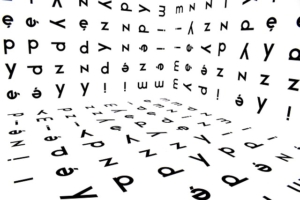When to use jargon: A copywriter’s guide
One of the big rules of copywriting is to ditch complicated language. When you use simpler words, your copywriting becomes more readable and that increases your chances of it being effective.
It makes sense, doesn’t it?
While this is a great rule most of the time, there are some exceptions.
There are moments when your copywriting is actually enhanced with some jargon. This post is going to open the door to some of those exceptions.
Table of Contents
The Oxford Dictionary defines jargon as:
Noun [mass noun] special words or expressions used by a profession or group that are difficult for others to understand.
As a copywriter, using jargon is ok if ….
You want to create a sense of enhanced value
Value is in the mind of the beholder and you have to agree that a “certified, pre-owned car” is more appealing than a “used car”.
You need to be careful that you aren’t inflating your copy just for the hell of it because then you’re just writing meaningless marketing fluff and all the other copywriters will laugh at you.
You are writing to exclude people
 As a copywriter, this is usually the exact opposite of what you want to achieve but jargon can help you gain some currency with an in-crowd.
As a copywriter, this is usually the exact opposite of what you want to achieve but jargon can help you gain some currency with an in-crowd.
Readers can feel smug knowing they have clever trousers on and they get it, unlike the people around them.
The jargon might be slang or highbrow language but (when used with caution) some jargon can help you narrow the field of your audience and create some exclusivity.
You are writing about a technical topic
There are lots of industries that have their own language – everything from IT and engineering to blogging and craft. The more specialised the topic, the more specialised the language. If your copywriting is selling a technical product to a technical audience, you must speak the same language.
This is when jargon gets some credibility and becomes terminology. Terminology helps you describe something precisely and, more often than not, simpler substitutes just don’t exist.
What about acronyms?
I don’t know about you but there seem to be so many more acronyms around these days.
If you’re going to use an acronym, you should explain the term in full with the acronym following in parentheses. You only have to explain it once but make sure you’re consistent in how you present it. For example, don’t switch between explaining business-to-business as B2B and B-to-B.
Bob Bly, copywriter, says:
“Even when using legitimate technical terms and acronyms, don’t overdo it. A sentence packed with too many acronyms and technical terms seems cold, inhuman, and almost unreadable. The optimal ratio is no more than one technical term for every ten words in the sentence.”
I don’t know about you but seeming cold and inhuman is never one of my copywriting goals!
If you’re wondering if it’s acceptable to use jargon in your copywriting then your decision should come back to three golden rules of copywriting:
- Know your audience.
- Know your audience.
- Know your audience.
When in doubt, leave the jargon out or explain it!
Are you a secret jargon junkie? Go on – you can tell me. We’re all friends here. Or perhaps you know of other circumstances in which jargon is perfectly acceptable?
About the author: Belinda Weaver
Belinda Weaver is the founder of Copywrite Matters and copywriter behind The Copy Detective blog. If you want to be the FIRST to hear when her next copywriting master class course (so you can write better copy, faster) get on the master class prelaunch list.
Join me on www.copywritematters.com.au




